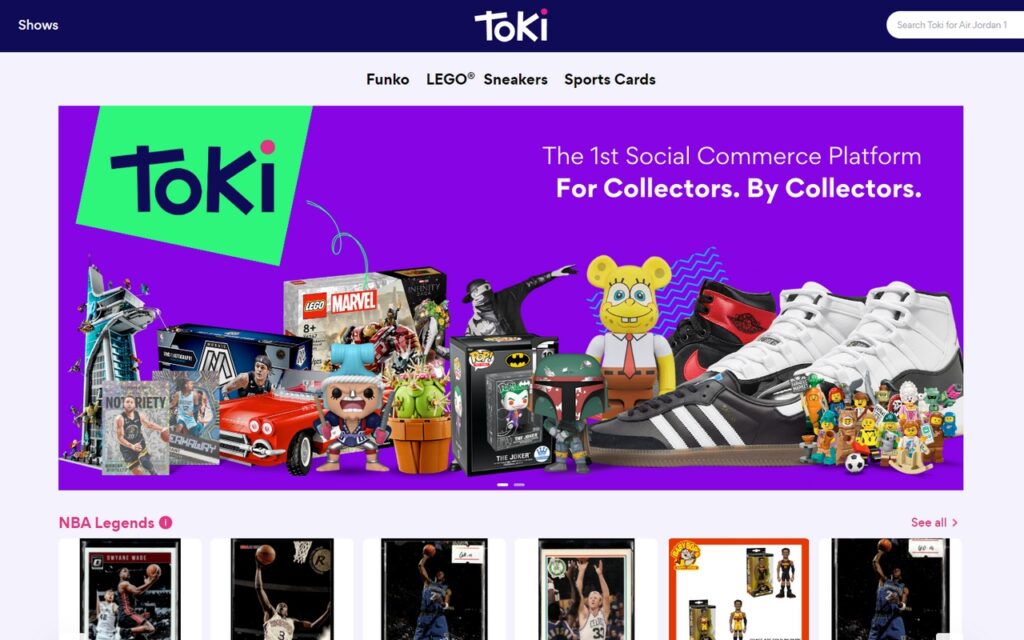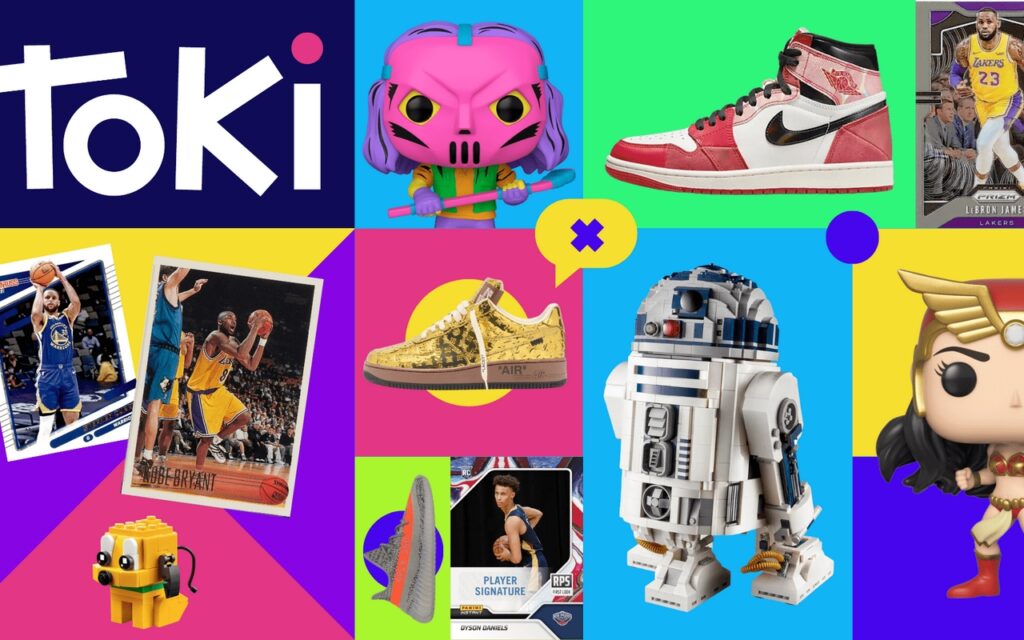What happens when ex-GCash execs, millions in funding, and one of the hottest trends in Southeast Asia still isn’t enough? You get Toki—a collectibles startup that launched fast, burned bright, and shut down less than two years later. If you’re into collecting, building a marketplace, or just curious about the business of fandom, the rise and fall of Toki is packed with hard lessons straight from the collectibles market.
Want the best connection when online shopping? Check out PLDT Home!
The Quick Rise and Sudden Fall
Toki was founded in late 2023 by former GCash executives, aiming to be the social-commerce platform for collectibles in the Philippines. They raised $1.8 million, built a slick app, and went after a projected $5 billion local collectibles market—focusing on sneakers, trading cards, Funkos, anime merch, and more.

But by June 2025, it was all over.
CEO Frederic Levy confirmed in multiple posts that regulatory and compliance challenges were the final nail in the coffin. Despite early traction and community buzz, Toki quietly shuttered operations, leaving many asking: What went wrong?
Where Toki Stumbled: Compliance Isn’t Optional
You’d think a startup led by fintech veterans would be regulation-ready. But that’s where things got messy.
Toki wasn’t just selling products in the collectibles market. It was facilitating payments, handling user wallets, and enabling cross-border transactions—all of which bring heavy legal baggage in the Philippines and Southeast Asia.
Here’s what they had to deal with:
- BSP E-money and Remittance Rules – If your platform processes payments like a digital wallet, you need Bangko Sentral ng Pilipinas (BSP) licenses. These take months (if not years) to acquire and maintain.
- Cross-border Customs and Taxation – Import/export of high-value or niche goods (like rare cards or signed toys) often requires customs declarations, proof of authenticity, and potential duties or VAT reporting.
- Seller Liability & Consumer Protection – If someone sells a fake Funko on your platform and the buyer files a complaint, the platform can be held accountable without a clear returns and verification policy.
For a startup trying to move fast and break things, compliance turned out to be an immovable wall.
The Collectibles Market Is Hot, but Not Forgiving

Toki wasn’t wrong about the opportunity. The collectibles scene in the Philippines and across SEA is booming:
- PH’s social commerce market is expected to hit $4.2 billion by 2030
- Live selling on TikTok, Facebook, and Shopee has become the norm for selling toys, cards, and limited-edition drops
- The fandom economy is strong, with Labubu plushes, Pokémon cards, and anime collabs consistently going viral
But the market is already dominated by giants like Shopee, Lazada, and even Temu. These platforms already have logistics, payment infrastructure, and compliance sorted.
In that environment, Toki was essentially rebuilding the wheel from scratch, with less capital, fewer integrations, and higher regulatory exposure.
Lessons for Future Founders: Don’t Skip the Boring Stuff
For entrepreneurs eyeing the fandom economy, here’s what Toki’s story teaches us:
- If you handle payments, prepare to be regulated like a bank.
Fintech rules apply, even if you’re “just” a marketplace. - Cross-border trade adds a ton of hidden complexity.
Custom duties, CITES restrictions (for some collectibles), and country-specific tax rules will hit hard. - Plug into existing ecosystems whenever you can.
Building your own platform is risky if TikTok or Shopee already lets creators sell collectibles with lower overhead and bigger reach. - Community isn’t everything if trust mechanisms fail.
A good collectibles platform needs strong buyer protection, verified sellers, and dispute resolution policies. Without that, even the most engaged users will hesitate.
What Collectors Should Know: Shop Smart, Not Just Social
As fans and buyers, we can take away a few things, too:
- Stick with platforms that protect both buyers and sellers. Look for platforms that offer clear return policies and dispute resolution, not just flashy UI.
- Know where your collectibles come from. If you’re buying from abroad, know what taxes or delays might be involved.
- Support local collectors who go legit. The future of the PH collectibles scene still lies in its communities, but let’s encourage those building with sustainability and structure in mind.
What’s Next?
Toki’s closure is a blow to the dream of a localized, community-driven collectibles market. But it doesn’t mean the dream is dead.
CEO Frederic Levy has already joined Lhoopa, a proptech startup—proof that the people behind Toki aren’t done building. And for all the regulatory struggles, interest in the space is still growing. Someone will crack the model. The next great collectibles platform might just take a very different shape—perhaps one that’s less about being a standalone app, and more about plugging into tools fans already use every day.
The fandom’s not going anywhere. But now we know: neither are the rules.
Read More:
Dinh Khang Pham Becomes the First-Ever Lorcana World Champion – VRSUS
Our Board Game Picks From All aBoard Expo 2025 – VRSUS
MTG x Final Fantasy – What Every New Player Should Know – VRSUS
Riftbound is Riot’s Next Big Power Play and It’s Aimed Right at the Heart of the TCG World – VRSUS





